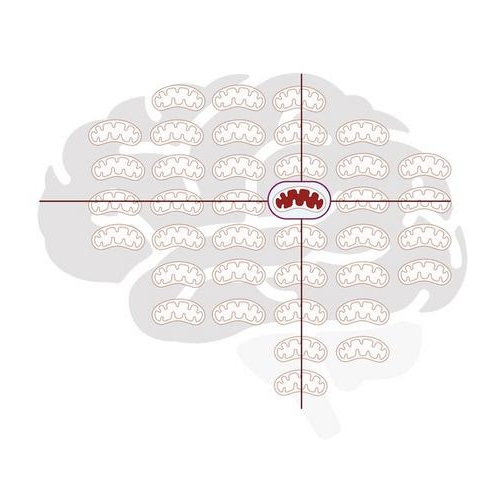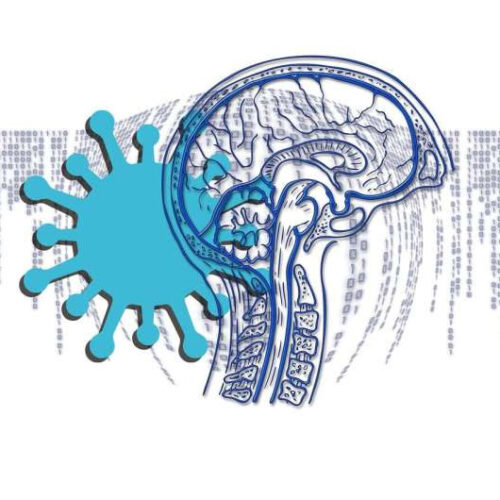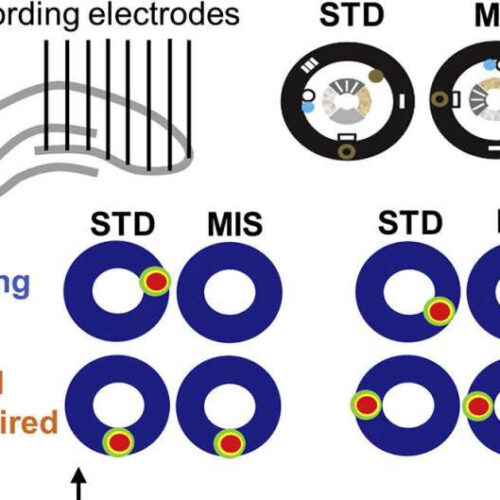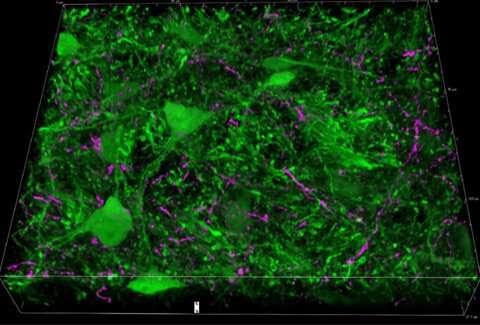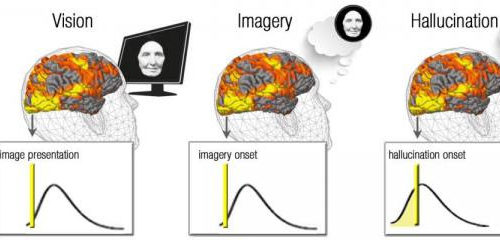Medical University of South Carolina researchers discover cellular process that naturally protects the brain after injury, informing future treatments for brain disease. MEDICAL UNIVERSITY OF SOUTH CAROLINA IMAGE: SCHEMATIC OF BRAIN WITH SUPERIMPOSED MITOCHONDRIA. DR. ONDER ALBAYRAM’S TEAM AT THE MEDICAL UNIVERSITY OF SOUTH CAROLINA FOUND THAT, THANKS TO A NATURAL NEUROPROTECTIVE RESPONSE, DAMAGED MITOCHONDRIA...
Tag: <span>Brain mechanism</span>
New study reveals possible brain mechanisms behind COVID-19 delirium
by King’s College London Credit: Pixabay/CC0 Public Domain Researchers from King’s College London have shown that when brain cells are directly exposed to blood taken from COVID-19 patients with delirium, there is an increase in cell death and a decrease in the generation of new brain cells. Delirium represents a state of confusion indicating that,...
Neuroscientists find brain mechanism tied to age-related memory loss
by Johns Hopkins University Graphical abstract. Credit: Current Biology (2022). DOI: 10.1016/j.cub.2022.04.077 Working with rats, neuroscientists at Johns Hopkins University have pinpointed a mechanism in the brain responsible for a common type of age-related memory loss. The work, published today in Current Biology, sheds light on the workings of aging brains and may deepen our understanding of Alzheimer’s...
Amygdala found to have role in important pre-attentive mechanism in the brain
by University of Massachusetts Amherst Mouse brain stem inhibitory neurons (green) activated by amygdala inputs (magenta neuronal processes). Credit: University of Massachusetts Amherst We’re all familiar with the startle reflex—that sudden, uncontrollable jerk that occurs when we’re surprised by a noise or other unexpected stimulus. But the brain also has an important pre-attentive mechanism to tamp...
A brain mechanism underlying ‘vision’ in the blind is revealed
WEIZMANN INSTITUTE OF SCIENCE IMAGE: THE VISUAL CENTERS IN THOSE SEEING A FILM OR IMAGINING AS INSTRUCTED HAD SIMILAR TIMING IN THEIR BRAIN ACTIVITY, WHILE THOSE EXPERIENCING SPONTANEOUS HALLUCINATIONS SHOWED A GRADUAL INCREASE IN SLOW FLUCTUATIONS CREDIT: THE WEIZMANN INSTITUTE OF SCIENCE Some people have lost their eyesight, but they continue to “see.” This phenomenon,...
New pain-blocking brain mechanism may relieve arthritis
Researchers have found that an experimental compound works in the amygdala to quell the pain of arthritis in rats. Experiments in rodents suggest that pain relief in arthritis originates in the brain. Pain is an alert that something is wrong — unfortunately, the pain does not go away while the problem remains, and finding a resolution is not...
Scientists find brain mechanism that naturally combats overeating
by Rockefeller University Food is, generally speaking, a good thing. In addition to being quite tasty, it is also necessary for survival. That’s why animals have evolved robust physiological systems that attract them to food and keep them coming back for more. Now, research in mice reveals the existence of brain cells that have the opposite effect, curbing an animal’s...
OCD: Brain mechanism explains symptoms
A large review of existing neuroscientific studies unravels the brain circuits and mechanisms that underpin obsessive-compulsive disorder. The researchers hope that the new findings will make existing therapies more effective, “or guide new treatments.” New research analyzes the brain scans of almost 500 people to unravel the brain mechanisms in OCD. Obsessive-compulsive disorder (OCD) is...

